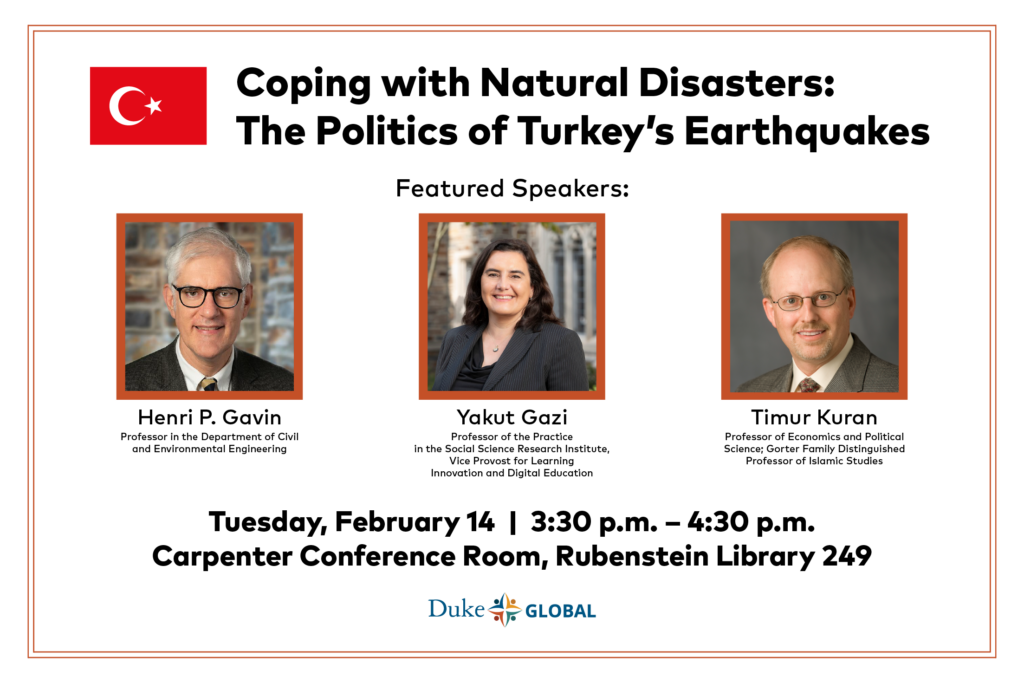
Join us in this interdisciplinary discussion to understand the geological, civil engineering, social, economic and political dimensions of the recent earthquakes in Turkey. As geographers generally agree, there is no such thing as a natural disaster. Natural processes occur all the time, but in every phase of such events (causes, vulnerability, how prepared one may be, what happens, what the response looks like, and how one rebuilds), there are tremendous social causes that determine who lives and who dies. During his visit to the region after the earthquakes Turkish President Erdogan said “it was impossible to prepare for the scale of this disaster.” While recognizing the catastrophic magnitude of the event, we want to ask the question “was it really impossible to better prepare?” With the help of the experts here, we will unpack and situate the earthquakes within politics.
About the speakers:
Henri P. Gavin, Professor in the Department of Civil and Environmental Engineering, Duke University
Henri P. Gavin is the director of the Structural Dynamics and Seismic Response Control Laboratory. His research interests are in the areas of structural dynamics, earthquake engineering, nonlinear dynamics, seismic hazard mitigation for building contents, system identification, the statistical characterization of environmental loads including wind and earthquake, and optimal control with application to systems with controllable damping.
Yakut Gazi, Professor of the Practice in the Social Science Research Institute, Vice Provost for Learning Innovation and Digital Education, Duke University
Yakut Gazi oversees digital and lifetime learning operations, including the pre-college and retirement programs. Previously, she was the Associate Dean for Learning Systems at Georgia Tech Professional Education. Her higher education experience spans over 29 years in four countries. She served on the Academic Advisory Council for Quality Matters©, is an elected council member and First Vice President of the International Association for Engineering Continuing Education (IACEE), and an at-Large Board Member of the University Professional and Continuing Education Association (UPCEA). Dr. Gazi has her Ph.D. in Educational Psychology from Texas A&M University, and an M.A. in Educational Sciences and a B.S. in Teaching Chemistry, both from Bogazici University in Turkey.
Timur Kuran, Professor of Economics and Political Science; Gorter Family Distinguished Professor of Islamic Studies, Duke University. Timur Kuran’s research focuses on (1) economic, political, and social change, with emphases on institutions and preferences, and (2) the economic and political history of the Middle East, with a focus on the role of Islam. His current projects include a study of the role that the Middle East’s traditional institutions have played in its poor political performance. His publications include Private Truths, Public Lies: The Social Consequences of Preference Falsification and The Long Divergence: How Islamic Law Held Back the Middle East. He was educated at Princeton University (AB 1977) and Stanford University (PhD 1982). He directs the Association for Analytic Learning about Islam and Muslim Societies (AALIMS); co-edits a book series for Cambridge University Press, “Economics, Choice and Society”; and (as of January 2017) co-edits the Journal of Comparative Economics. |